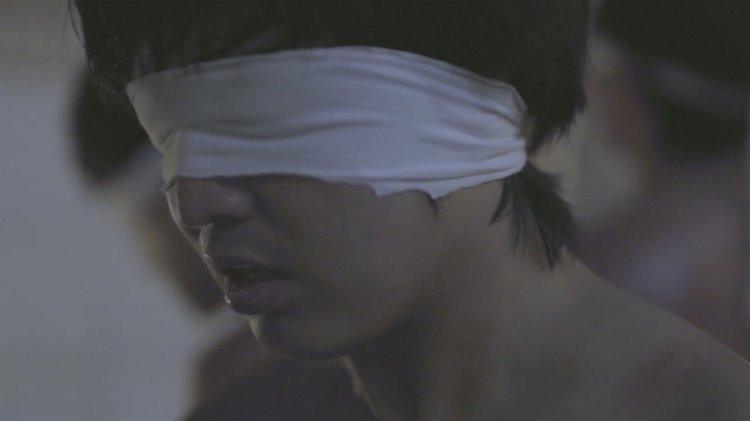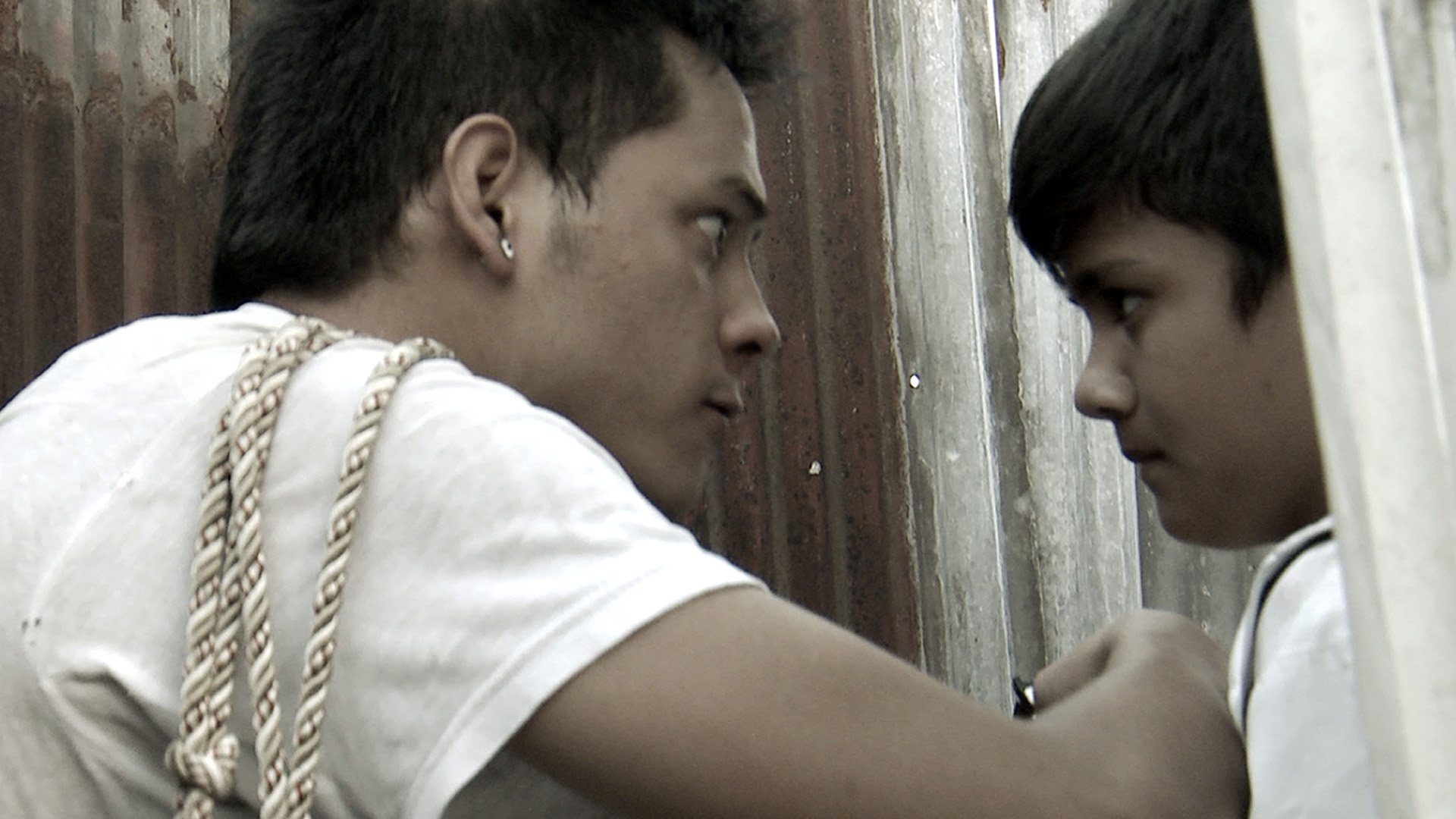Isang Himala

Synopsis
Isang Himala follows Elsa, an unassuming young woman from the desolate village of Cupang, who claims to have been granted healing powers by the Virgin Mary. Her supposed miracles draw
pilgrims and tourists, breathing new life into the town. Yet, as Elsa’s influence grows, so does the moral decay in Cupang. Leaders capitalize on her image for profit, and the townspeople descend
into fanaticism. When a devastating tragedy shatters the community, Elsa and the villagers are forced to confront painful questions about faith, truth, and the cost of blind devotion.
Background of the Film
Isang Himala is based on the classic film Himala (1982), which premiered in the competition section of the Berlinale Film Festival in 1983, and was named Best Film by the CNN Asia Pacific Screen Awards in 2008.
In 2003, Himala’s screenwriter Ricky Lee, along with composer Vincent De Jesus, adapted the film into a musical play, which has been staged multiple times in the Philippines, to great acclaim.
Now, Himala has returned to its cinematic origins, with a bold new vision and soundscape.
Director’s Statement
In 2019, I watched a staging of Himala, and it changed my life. It was the most visceral experience I’d ever had in a theater, resonating deeply with me as a Filipino. I was struck by how Ricky Lee transformed the 1982 film, expanding the story from a single-protagonist drama to a multi-character satire.
More than four decades since the original film’s premiere, Himala has lost none of its urgency or power. It explores themes of blind faith, greed-fueled politics, and fanaticism—issues as pressing today as they were under the Martial Law dictatorship of the 80s’. With our country seemingly slipping back toward authoritarianism, I felt compelled to bring this story back to a wider audience through cinema.
This adaptation features a number of key differences from the source material, such as the characterization of Elsa, and the ending. Moreover, while the original was treated by the great Ishmael Bernal with realism, I chose a stylized approach for this film. This decision not only honors the theatrical roots of the musical but also frames Himala as a timeless parable.
Too often, I feel, people ignore the truth when confronted with reality. Sometimes, we need fantastical stories to reveal it. In this film, we’ve created a world that exists beyond specific time and place, with musical elements, surreal sets, and fantastical lighting. This isn’t us, but somehow, it reflects us.
Festivals
Official Entry, 2024 Metro Manila Film Festival
Gomburza

Synopsis
In the 19th century, as Spain's grip on its colonies began to weaken, a wave of revolutionary sentiment swept across its territories. In Mexico, a priest emerged as the leader of their revolution. Meanwhile, in the Philippines, a similar fervor was igniting within the Church, setting the stage for a pivotal moment in the nation's history. This backdrop forms the core of "Gomburza," a film that explores the intertwining tales of rebellion, faith, and the birth of Filipino consciousness.
Director’s Statement
Philippine national hero Jose Rizal dedicated his final novel “El Filibusterismo” to GomBurZa, and in a letter, he confessed that the three priests' influence was so significant that without them, he might never have penned his works. This reverence extended to the members of the Katipunan revolutionary movement, who used pieces of black cloth as amulets, believing them to be torn from GomBurza’s cassocks.
It’s easy to wonder why Rizal and the Katipunan found inspiration in three unassuming priests who never fought a war. But making this movie, I began to understand why.
While history often focuses on grand, heroic figures, GomBurZa were simple people caught in a whirlwind of political upheaval — but they held a little fire that would eventually spread throughout our nation. Their story is not one of individual heroism, but of collective strength; not just of battle, but of sacrifice.
These, I believe, are Filipino values, and they are still relevant until today. I hope that this story moves, inspires, and unites the current generation of Filipinos, just as it did generations past.
Festivals
Official Entry, 2023 Metro Manila Film Festival
Kapatiran

Synopsis
With the deadly fraternity wars among Filipino youth as a backdrop, Pepe Diokno’s third film, Kapatiran, is a cinematic essay about the filmmaker’s hometown of Manila. Blurring the lines between fact and film, it is a bleak, disjointed portrait of a disjointed city; a meditation on its social cancer.
Director's Statement
In my hometown of Manila, we often read news about students involved in fraternity violence. Young men are beaten and sometimes killed in hazing rituals or murdered in fraternity wars. Even law students are involved in this dangerous cycle — but why?
To me, these are not random acts of violence. They are not just the effects of angsty youth. Fraternities are secretive groups that promise life-long connections and an easy way to get ahead. They are a symptom of a bigger problem, a disease that plagues our society. In our country, “who you know” is of primal importance, and rules can be bent by anyone with connections. This tribalism — this lack of nationalism — has allowed the worst of things to persist, from poverty to corruption and murder.
“Kapatiran” is a portrait of this disjointedness; a meditation on our social cancer. It blurs the lines between fact and film, mixing scripted scenes and found footage, in a cinematic conversation. My hope is to break the blindness to this flagrant dysfunction; to hold up mirror and confront our demons.
Festivals
2015 QCinema IFF, The Philippines
2016 Karlovy Vary IFF, Czech Republic (Official selection, Out of Competition)
Production Companies
Epicmedia (Philippines)
Potocol (Singapore)
Above the Clouds
No streaming links available yet.

Synopsis
After losing his parents in a flood, 15-year-old Andy is forced to live with his estranged grandfather in the cold northern parts of the Philippines. They felt they've lost everything, but on a journey up a mountain, they start to come to terms with their grief.
Director's statement
“Above the Clouds” is about grieving with death. This film is a personal journey for me. The inspiration began in 2009, when Typhoon Ketsana hit my home city of Manila and killed hundreds of people. Meanwhile, the plot of the film came from the death of my grandmother in 2011. When a loved one dies, we always struggle to keep their memory alive, and this idea was central to make in making this film. Grief comes from the thought that we will never be with our loved ones again, and hope comes from the realization that they live on in our hearts for as long as we preserve their memories. The journey of the film is a journey between these two ideas, and ultimately, being able to rebuild our lives and find hope amidst despair.
Festivals
2014 Singapore IFF (Silver Screen Award Nominee)
2014 Tokyo IFF (Official selection)
Production Grants
Aide aux Cinemas du Monde (France)
Asian Cinema Fund (South Korea)
Visions sud Est (Switzerland)
Production Companies
Epicmedia (Philippines)
Heaven’s Best (Philippines)
Unlimited (France)
Engkwentro

Synopsis
In a dizzying slum in the Philippines, young people are driven to a life of crime, and an omnipresent mayor threatens to spill blood on the streets in the name of peace and order.
Caught in this chaos is Richard, a teenage gang leader who has found himself on the mayor's hit list. He tries to escape execution, but complications arise when he discovers his younger brother Raymond in the claws of a rival gang.
Violence explodes in a deadly midnight "engkwentro" ("clash"), when the gangsters square off and the vigilantes are on the hunt. Can Richard and Raymond make it out alive?
Director's Statement
In 2007, while doing research for a documentary, I met two brothers at detention facility in Davao City. They were gang members, aged 15 and 17, and they told me that they were being hunted down by a “death squad”. I was 19 at the time, and discovering that people my age faced such injustice, I was compelled to learn more about their situation.
At the time, human rights advocates had reported that the death squad had killed around 814 people, many of whom minors. Many reports tied a local mayor to the group; and his public pronouncements to “kill criminals” seemed to confirm the suspicion. This is the backdrop upon which “Engkwentro” was written and produced.
The film premiered in 2009. It was my debut feature. In 2016, a new administration was elected on its promise to “kill criminals”. Since then, the country has seen a rise in death-squad style killings. It saddens me to witness how the violence presented in “Engkwentro” has taken hold of society. 11 years ago, I had hoped that this film would make a difference. Today, I pray for the future for my country.
Festivals and Honors
2009 Cinemalaya FF (Official Selection)
2009 Venice Film Festival (Winner, Lion of the Future; Winner, Orizzonti Prize)
2010 Rotterdam IFF (Official Selection)
2010 Gawad Urian (Winner, Best Editing)
2020 Locarno Film Festival Open Doors (Special Mention)


